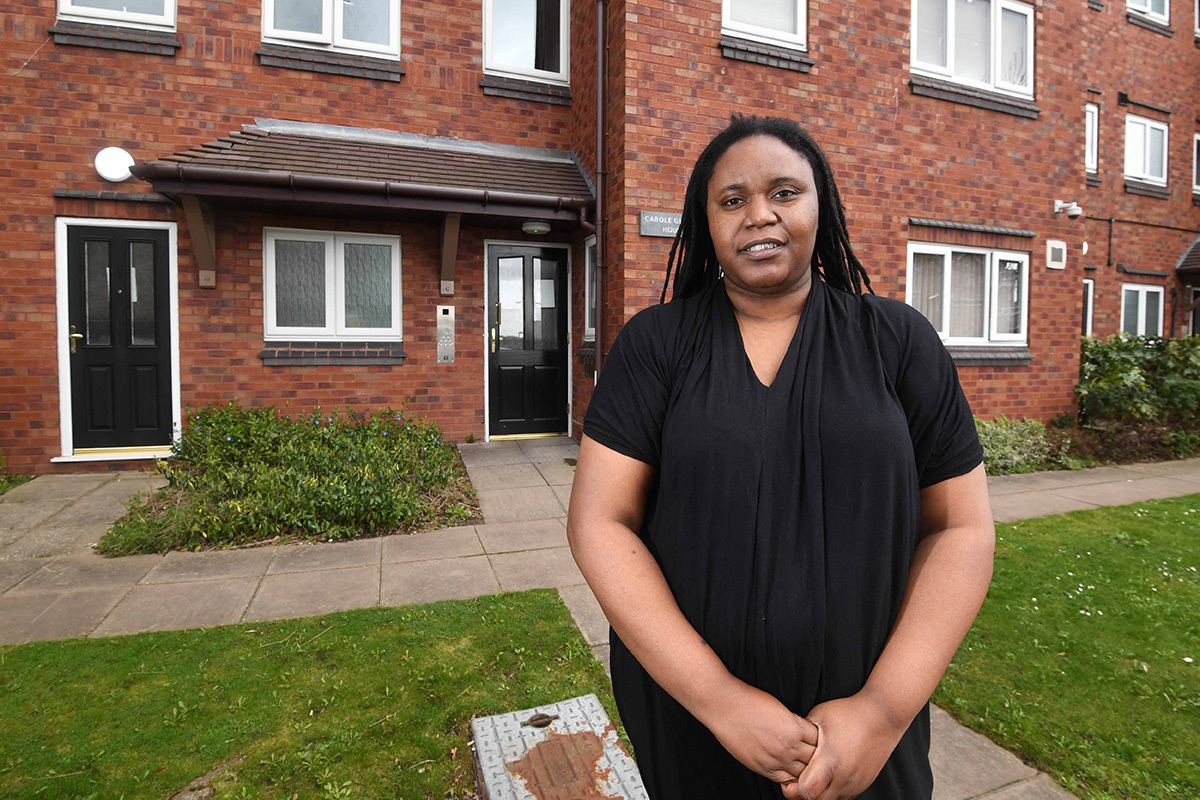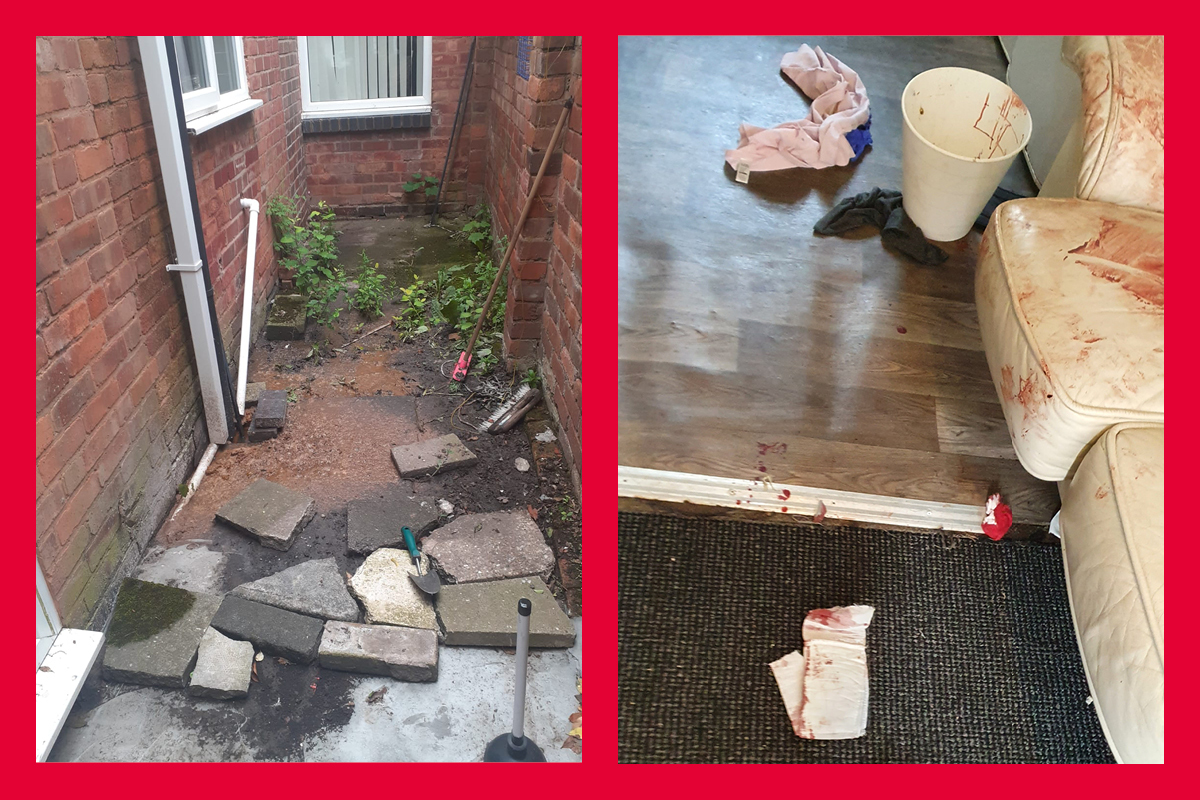You are viewing 1 of your 1 free articles
Birmingham City Council housing lead interview: ‘If we were to retrofit all of our properties, the bill is £3.6bn’
Birmingham City Council was the subject of a critical Housing Ombudsman report last month and faces a battle with low-quality exempt accommodation. Stephen Delahunty asks housing lead Sharon Thompson what the authority’s plans are

Last month, Birmingham City Council was subject to one of the most damning Housing Ombudsman reports issued since the organisation’s revamped approach took effect in the aftermath of the Grenfell Tower fire.
The report, which covered complaints over a six-month period, found “weakness in policies, repeated failings and common points of service failure” that led the watchdog to conclude that its findings are indicative of wider failure in repairs, record-keeping, complaint-handling and compensation.
The findings showed the council had faced 15,000 complaints about damp and mould in the past five years and that more than a third of its properties do not meet the Decent Homes Standard.
Housing ombudsman Richard Blakeway said the maladministration rate was “unusually high” and that the council’s complaint response was “very defensive, adversarial, and lacked any type of acknowledgement that the landlord had done something wrong”.
Birmingham Council owns 62,000 homes, making it one of the largest social landlords of any kind in the country and the largest council landlord in England. So this judgement was a big moment.
Inside Housing has caught up with Sharon Thompson, cabinet member for housing and homelessness at the council, to discuss how the authority plans to improve.
Our properties are on average 70 years old, so sometimes there are structural issues and we know our properties are not where we want them to be, or how some of our tenants deserve,” she states.
She adds that issues such as overcrowding and fire safety have left councils with difficult investment decisions for their stock. The cost of fixing these is high.
“If we were to retrofit all of our properties, I think the bill is £3.6bn,” says Ms Thompson.
“Following on from Grenfell, we made a decision to invest in the fire safety of our tower blocks, alongside retrofit and other measures. This started at around £51m to fund, but ended up being more like £93m.”
Increased spending falling short
The council is looking to increase the overall investment in its existing stock , which was around £70m a year in recent years, but still needs to find an additional £40m a year to meet the Decent Homes Standard going forward.
Ms Thompson states: “We hope to do that every year for the next few years, but we’ve still got a multimillion-pound shortfall, so it’s a huge amount.”
She says the council has applied for government funding to help meet its stock investment and retrofit needs, but feels a much broader conversation is needed with the government about the cost of doing this work.
“Birmingham was pulled out quite publicly and nationally by the secretary of state and, obviously, we’ve had some very difficult ombudsman cases, but we’re not isolated. So what I can see is that the government is pretty much doing everything apart from giving us the cash,” she adds.
Asked if the government has truly prioritised housing, Ms Thompson says: “It hasn’t. It’s an absolutely broken system. From the time that I’ve been in housing, I’ve never known it to be as broken.”
As previously reported by Inside Housing, Birmingham Council has recently become the centre of a new and worrying expression of the housing crisis: poorly maintained exempt accommodation (EA).
Exempt housing is supposed to provide homes for vulnerable residents, such as domestic abuse survivors, recovering addicts and refugees. It should be a safe haven as support is also given to help people take the next step in their lives. Often it is.
However, in an increasing number of cases, EA providers are benefiting from the high housing benefit rates for which these homes are eligible, but are not providing the services needed. Nowhere is EA more abundant than in Birmingham.
Over the past eight years, the number of people staying in this type of housing in Birmingham has ballooned seven-fold to more than 21,000 claimants. Investors have realised that uncapped housing benefit rates for EA can equal a potential cash cow, and they have been taking on residents and banking the profits without necessarily providing the right levels of support.
Birmingham Council’s housing benefits regime has previously been criticised for fuelling this growth, but the authority maintains that it applied the benefit rules strictly to government legislation and that it has an extremely robust application process.
Benefits reform needed
Ms Thompson says “there’s been a lot of lessons learned”, adding that she thinks there is a need for a reform of the benefits system.
“I don’t think that paying for exempt accommodation solely through housing benefit is necessarily the right way to go. It’s not fit for purpose at the moment. I think that the criteria around housing benefit needs to change, and providers need to be providing more than just minimal care and support in exempt accommodation,” she explains.
Ms Thompson pointed out that one person’s level of support will be completely different to another person’s. She adds: “Other criteria like needing to be a non-profit, when clearly some are making some considerable profit, shows there definitely needs to be change.”
She says that in the meantime, Birmingham Council will be looking to “put right” some of the issues with EA across the city as soon as possible.
The authority will soon begin a selective licensing scheme for the private rented sector. The scheme is due to begin in June and will see hundreds of private landlords in Birmingham forced to get a licence to show they are offering “fit and proper accommodation” over the next five years.
Ms Thompson says: “We’re going to employ over 100 members of staff over the lifetime of the scheme to actually deliver against and enforce.”
Cleaning up the private sector, exempt accommodation and the council’s own act are big jobs. Ms Thompson and her colleagues have their plates full for the years to come.
Sign up for our Council Focus newsletter
Already have an account? Click here to manage your newsletters












